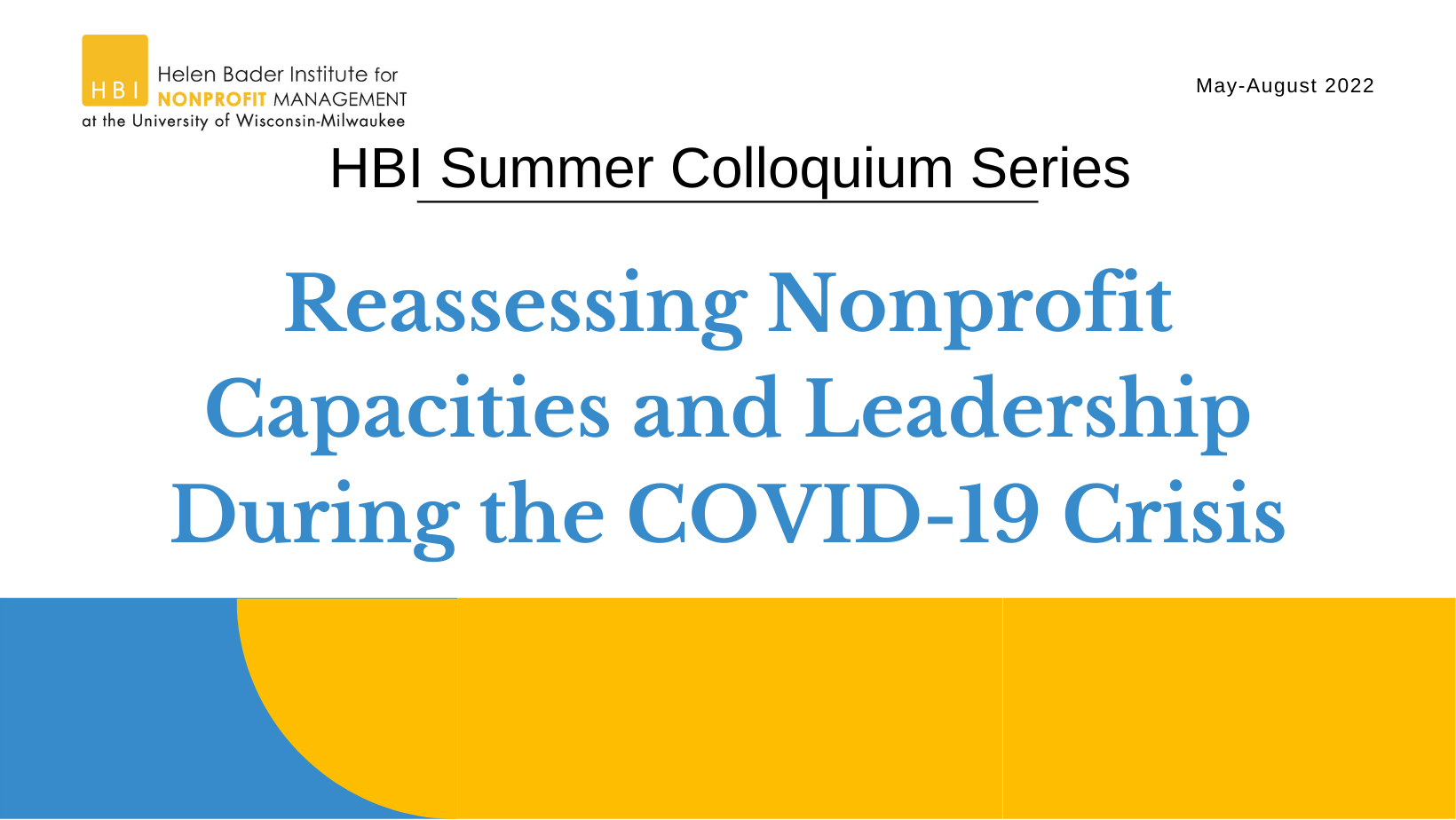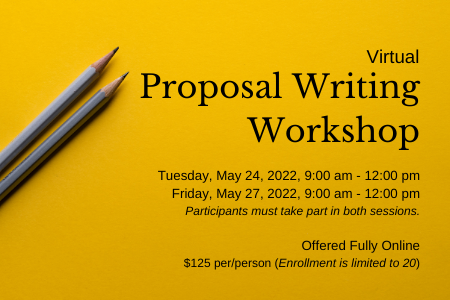HBI Executive Leadership Circle Annual Event
WisNRG Capacity-Building Round Table
Nonprofit Lift

Upcoming Resource for Greater Milwaukee Nonprofits
We are excited to share an upcoming resource for nonprofits in the Greater Milwaukee Region, which we have been working on as part of Nonprofit Lift, a collaboration of local intermediary and philanthropic organizations (detailed below) that formed last year.
In response to feedback from local nonprofits, Nonprofit Lift will be launching a website later this spring where nonprofits in the Greater Milwaukee Region can easily find resources for capacity-building, including a directory of consultants.
Help Us With the Next Step!
Before Nonprofit Lift launches the website publicly to nonprofits, it invites consultants to nonprofits in the Greater Milwaukee Region to create a free listing for themself on the consultant directory.
Does your organization work with a nonprofit consultant? Please share this information so that they can follow up and be included in the directory!
Nonprofit Lift is a collaboration of the Helen Bader Institute for Nonprofit Management at UW-Milwaukee, Jobs That Help, Project Pivot, the Nonprofit Academy of Wisconsin, Nonprofit Management Fund, Urban Economic Development Association of Wisconsin, and Create Wisconsin (formerly Arts Wisconsin).
Summer 2022 Colloquium Series

Reassessing Nonprofit Capacities and Leadership During the COVID-19 Crisis
Many nonprofits have expressed concerns that an extended period of revenue uncertainty caused by COVID-19 and a significant change in operations required to sustain services during the pandemic jeopardizes nonprofits’ ability to promptly address vital human needs and make progress toward the mission. Nonprofit scholars and practitioners demonstrate that nonprofit responses to a fiscal shock involve a complex set of managerial decisions meant to balance actions for obtaining resources required to fill revenue gaps and maintain the delivery of services and programs at their total capacity. The HBI Summer Colloquium Series presents four academic studies focused on nonprofit responses to the initial impact of the revenue crisis caused by the pandemic (April – August 2021). Although each study looks at nonprofit performance and decision-making from a different analytical perspective, all studies shed light on how the nonprofit organizations from Wisconsin responded to the crisis and what organizational and contextual factors influenced the decision outcomes.
May 18, 2022 – 9.00 am
Authors:
- Erica Ceka, Asst. Professor, Department of Public & Nonprofit Administration
- Douglas Ihrke, Executive Director, Helen Bader Institute for Nonprofit Management
Summary: This study assesses factors that influence nonprofit decisions to reduce staff to cope with revenue uncertainty caused by COVID-19. The results confirm earlier findings on the importance of fiscal conditions on nonprofit capacity to sustain its workforce after the initial revenue shock. The findings also reveal that despite revenue uncertainties, nonprofits will be less likely to reduce staff when there is an increased demand for services offered to marginalized groups. However, the results indicate that the involvement of board members in planning will increase the probability of a layoff decision.
June 15, 2022 – 9.00 am
Authors:
- Erica Ceka, Asst. Professor, Department of Public & Nonprofit Administration
- Lora Warner, Assoc. Professor, UW-Green Bay, Public & Environmental Affairs Department
Summary: This study investigates whether access to the Paycheck Protection Program increases the capacity of nonprofit organizations to resume services after the initial impact of COVID-19 and sustain their operations and workforce for at least 12 weeks. The results reveal that the loan recipient nonprofits report significantly greater capacity to fund payroll and continue service delivery than the non-recipients. However, the study does not confirm a significant effect of the Paycheck Protection Program loans on the capacity of Wisconsin nonprofits to resume services after the initial fiscal impact.
July 20, 2022 – 9.00 am
Authors:
- Erica Ceka, Asst. Professor, Department of Public & Nonprofit Administration
- Douglas Ihrke, Executive Director, Helen Bader Institute for Nonprofit Management
- Bryce Lord, Associate Director, Helen Bader Institute for Nonprofit Management
Summary: This study analyzes conditions that facilitate nonprofit decisions to collaborate with local governments and nonprofits during the COVID-19 crisis. The study results demonstrate that nonprofits are more likely to collaborate with other nonprofits when they can fund the payroll, are highly concerned about the inability to reach vulnerable groups, and when demands for services offered to vulnerable groups are increasing. The findings also show that decisions to initiate collaborations with local governments are more likely to be implemented when nonprofits report higher demands for their services and are more concerned about their inability to pay rent or mortgage. Further, the findings reveal that the involvement of board members has a significant effect on nonprofit decisions to initiate collaborations with nonprofits and local governments.
August 17, 9.00 am
Authors:
- Erica Ceka, Asst. Professor, Department of Public & Nonprofit Administration
- Douglas Ihrke, Executive Director, Helen Bader Institute for Nonprofit Management
- Alexis Nehmer, MS Candidate, Urban Studies, Department of Public & Nonprofit Administration
Summary: This study analyzes the connection between nonprofit capacity to adapt during uncertain times and significant performance concerns experienced by the nonprofits at the beginning of the COVID-19 pandemic. The findings show that nonprofits’ concerns about their performance at the mission level are subjective to their technical capabilities to transition their services to the virtual space, employees’ competencies, and characteristics of nonprofit beneficiaries. In addition, the results report that nonprofits’ concerns related to their fiscal performance are conditioned by nonprofits ’capacities to generate new revenue streams or services. The findings suggest that even if innovative tactics and competent human resources are critical for nonprofit performance, the development of adaptive capacity begins with visionary and strategic leadership.
HBI Summer Colloquium Series: The Covid-19 Crisis (IV)

Weak leadership, unprepared staff, and vulnerable beneficiaries: Shedding light on performance concerns of nonprofits during the pandemic
Authors:
- Erica Ceka, Asst. Professor, Department of Public & Nonprofit Administration
- Douglas Ihrke, Executive Director, Helen Bader Institute for Nonprofit Management
- Alexis Nehmer, MS Candidate, Urban Studies, Department of Public & Nonprofit Administration
Summary: This study analyzes the connection between nonprofit capacity to adapt during uncertain times and significant performance concerns experienced by the nonprofits at the beginning of the COVID-19 pandemic. The findings show that nonprofits’ concerns about their performance at the mission level are subjective to their technical capabilities to transition their services to the virtual space, employees’ competencies, and characteristics of nonprofit beneficiaries. In addition, the results report that nonprofits’ concerns related to their fiscal performance are conditioned by nonprofits ’capacities to generate new revenue streams or services. The findings suggest that even if innovative tactics and competent human resources are critical for nonprofit performance, the development of adaptive capacity begins with visionary and strategic leadership.
HBI Summer Colloquium Series: The Covid-19 Crisis (III)

Assessing the role of beneficiaries and boards on nonprofit decisions to collaborate during COVID-19
Authors:
- Erica Ceka, Asst. Professor, Department of Public & Nonprofit Administration
- Douglas Ihrke, Executive Director, Helen Bader Institute for Nonprofit Management
- Bryce Lord, Associate Director, Helen Bader Institute for Nonprofit Management
Summary: This study analyzes conditions that facilitate nonprofit decisions to collaborate with local governments and nonprofits during the COVID-19 crisis. The study results demonstrate that nonprofits are more likely to collaborate with other nonprofits when they can fund the payroll, are highly concerned about the inability to reach vulnerable groups, and when demands for services offered to vulnerable groups are increasing. The findings also show that decisions to initiate collaborations with local governments are more likely to be implemented when nonprofits report higher demands for their services and are more concerned about their inability to pay rent or mortgage. Further, the findings reveal that the involvement of board members has a significant effect on nonprofit decisions to initiate collaborations with nonprofits and local governments.
HBI Summer Colloquium Series: The Covid-19 Crisis (I)

Due to unforeseen circumstances, this presentation has been postponed.
Reducing staff to survive the pandemic
Do fiscal conditions, service demands, and board involvement explain layoff decisions of nonprofits during COVID-19?
Authors:
- Erica Ceka, Asst. Professor, Department of Public & Nonprofit Administration
- Douglas Ihrke, Executive Director, Helen Bader Institute for Nonprofit Management
Summary: This study assesses factors that influence nonprofit decisions to reduce staff to cope with revenue uncertainty caused by COVID-19. The results confirm earlier findings on the importance of fiscal conditions on nonprofit capacity to sustain its workforce after the initial revenue shock. The findings also reveal that despite revenue uncertainties, nonprofits will be less likely to reduce staff when there is an increased demand for services offered to marginalized groups. However, the results indicate that the involvement of board members in planning will increase the probability of a layoff decision.
Virtual Proposal Writing Workshop
Online

In partnership with Candid, the Helen Bader Institute for Nonprofit Management at the University of Wisconsin – Milwaukee will offer a grant proposal writing workshop as part of its Nonprofit Skills Academy.
In this two-day, fully-online, hands-on workshop, you will learn the main parts of a grant proposal. You will write several of those parts of the proposal during the class and get feedback on them from experts and peers. You’ll also learn how to find potential funders for your project, and you’ll learn what those funders look for in a proposal and what they don’t like to see.
What will you learn?
- Understand how to write a grant proposal for your own project
- Create a basic budget to use in your grant proposal
- Find potential grant funders for your proposal using Foundation Directory
- Learn what grant funders want in a proposal and the biggest red flags from their perspective.
Who should attend?
- Board members
- CEOs, executive directors, upper management
- Fundraising & development staff
- Grant writers
- All levels of experience
Bonus materials
- A 70-page workbook with worksheets and example
- Downloadable templates for preparing your proposal
- Temporary access to Foundation Directory
ENROLL NOW
Note: This workshop is limited exclusively to registrants from nonprofit organizations based in Wisconsin.
Virtual Proposal Writing Workshop

EVENT IS SOLD OUT
In this two-day, fully-online, hands-on workshop, you will learn the main parts of a grant proposal. You will write several of those parts of the proposal during the class and get feedback on them from experts and peers. You’ll also learn how to find potential funders for your project, and you’ll learn what those funders look for in a proposal and what they don’t like to see.
Virtual Proposal Writing Workshop

EVENT IS SOLD OUT
In this two-day, fully-online, hands-on workshop, you will learn the main parts of a grant proposal. You will write several of those parts of the proposal during the class and get feedback on them from experts and peers. You’ll also learn how to find potential funders for your project, and you’ll learn what those funders look for in a proposal and what they don’t like to see.